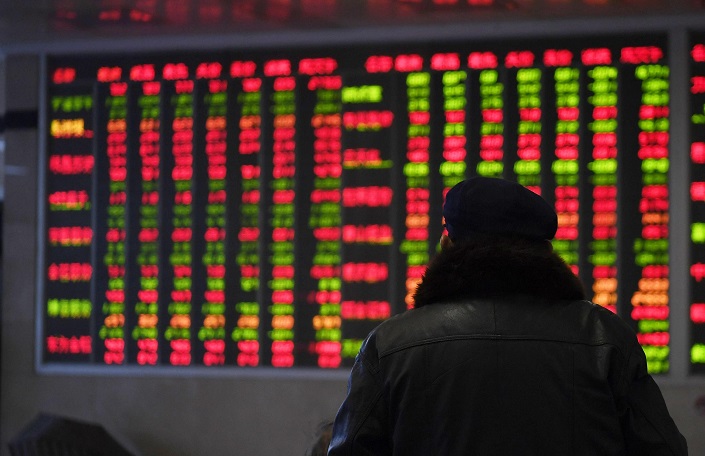China Stock Markets Tighten Rules on When Share Trading Can Be Suspended

China just made it harder for mainland exchange-listed companies to suspend trading of their shares when they face the risk of a serious drop in their price.
The Shanghai Stock Exchange and the Shenzhen Stock Exchange announced on Friday that they had strengthened the rules for share trading suspensions to curtail abuse of the practice. The suspension period for a major asset restructuring was shortened from six months to 10 days and shares of companies whose major asset restructurings do not involve the issuance of new shares cannot be suspended.
Companies have often stopped trading in their shares to prevent their price from plummeting when the market sours on the company. In 2017, an average of 69 Shanghai-listed companies suspended trading in their shares each day, down only slightly from an average 74 in 2016, according to the Shanghai Stock Exchange. Such suspensions accounted for about 5% and 6%, respectively, of all listed company shares in those years, according to Caixin’s calculations.
“Recently, the number of suspended companies on the Shanghai stock market has been reduced to about 10 per day, accounting for about 0.7% of all Shanghai stock exchange listed companies,” the stock exchange said in a November statement (link in Chinese). This was a sharp decline from August, when the average number was around 73 per day, according to the exchange.
The major rule change reduced the reasons for which a suspension of trading is allowed. Companies can no longer apply for suspensions for major asset restructurings that do not involve the issuance of new shares, for non-public offerings of shares, for overseas investments and for signing major new contracts. The stock exchanges will approve suspensions of share trading for companies that undergo bankruptcy, change of control, or issue new shares to purchase assets.
The stock exchanges added a new reason for which a share trading could be suspended. Companies can apply for a suspension when they plan to purchase assets through targeted convertible bonds. This is part of a new pilot project (link in Chinese) proposed by the China Securities Regulatory Commission in November to use targeted convertible bonds as a payment method for merger and acquisition deals.
Even when share trading can be halted, the suspension periods have been greatly reduced. The suspension period for companies undergoing major asset restructuring was shortened from six months to 10 trading days. Firms that experience change of control can only halt trading for five trading days. Companies facing bankruptcy reorganization can now only stop share trading for fewer than five trading days.
The abuse of trading suspensions was widely seen as a hurdle to the global credibility of mainland stock markets. Global index compiler MSCI said in June that the extend of trading suspensions was one of the reasons it had rejected previous bids to include Chinese stocks in its indexes.
Contact reporter Timmy Shen (hongmingshen@caixin.com)

- 1Cover Story: China Carves Out a Narrow Path for Offshore Asset Tokenization
- 2Drownings Shake Chinese Enthusiasm for Travel to Russia
- 3China Business Uncovered Podcast: A $15 Billion Bitcoin Seizure and the Fall of a Cybercrime Kingpin
- 4Over Half of China’s Provinces Cut Revenue Targets
- 5In Depth: Inside the U.K.’s China-Linked Shell Company Factory
- 1Power To The People: Pintec Serves A Booming Consumer Class
- 2Largest hotel group in Europe accepts UnionPay
- 3UnionPay mobile QuickPass debuts in Hong Kong
- 4UnionPay International launches premium catering privilege U Dining Collection
- 5UnionPay International’s U Plan has covered over 1600 stores overseas






